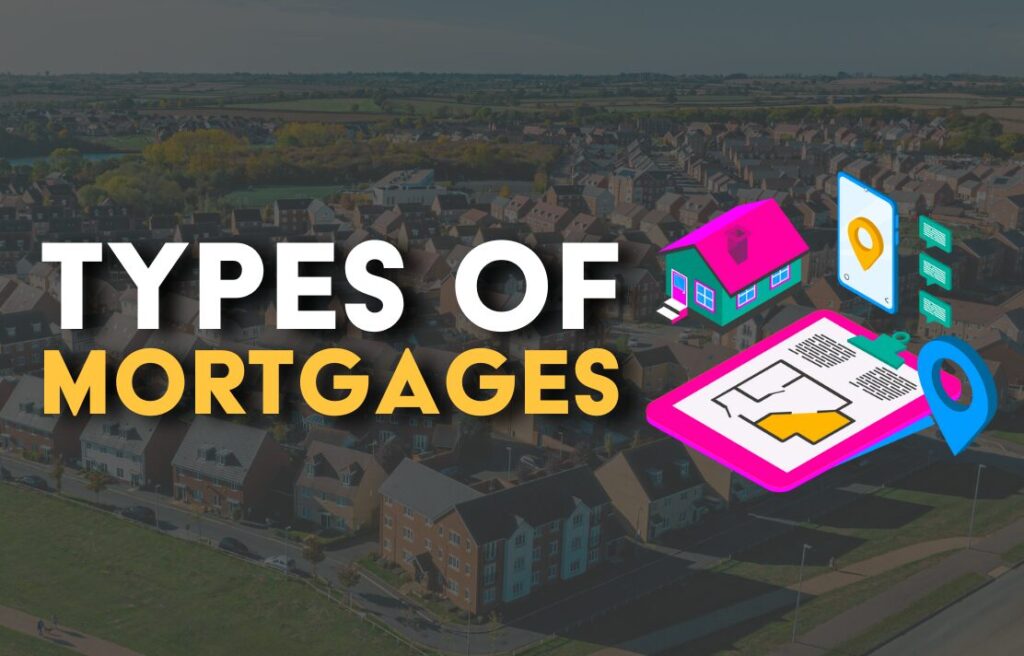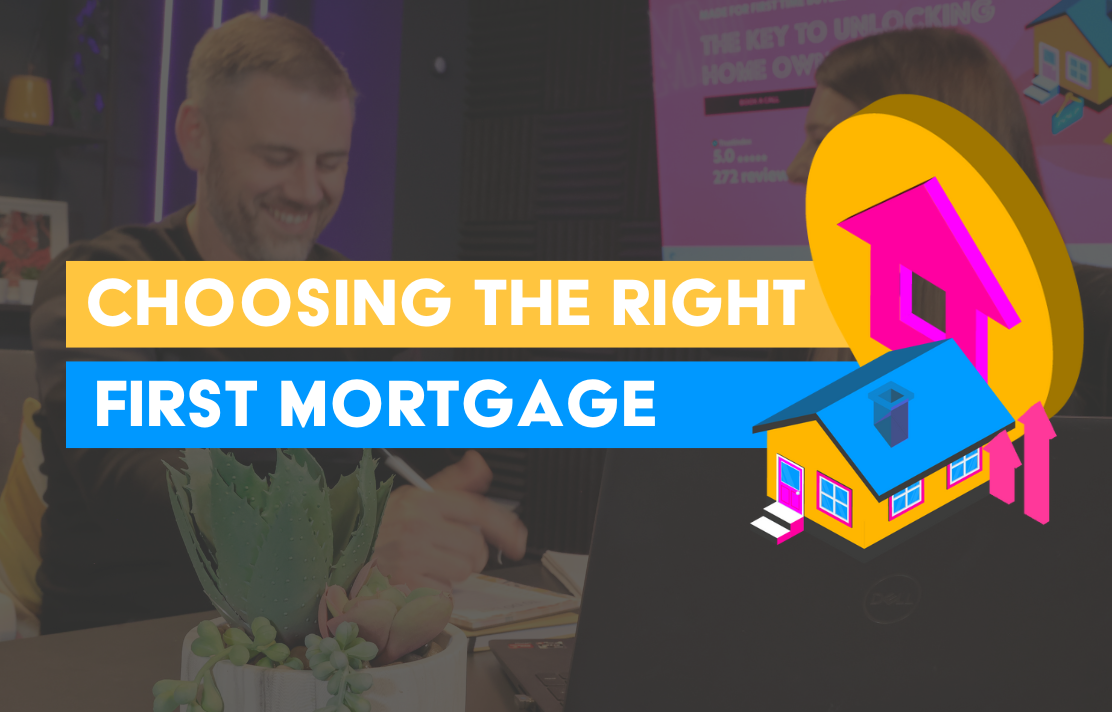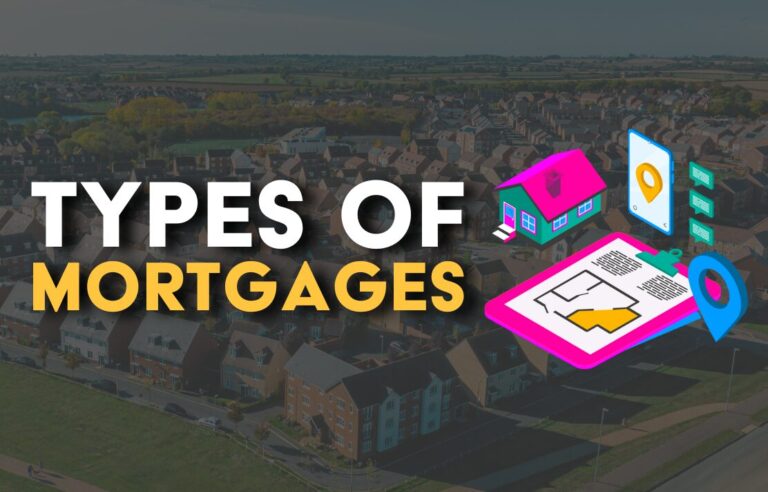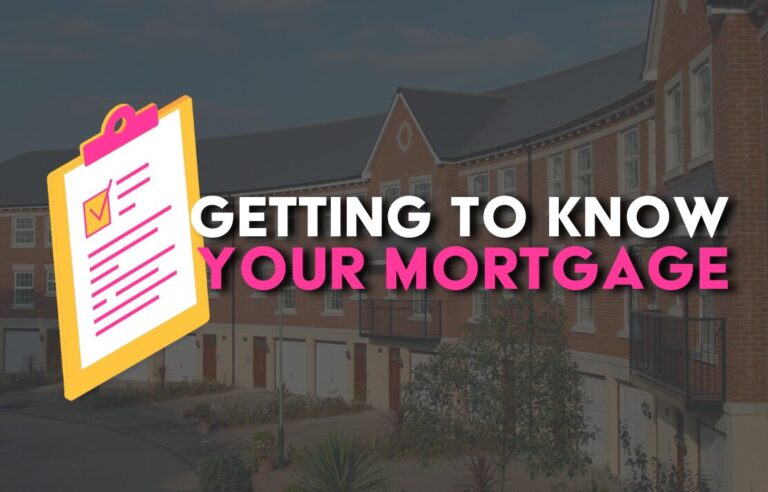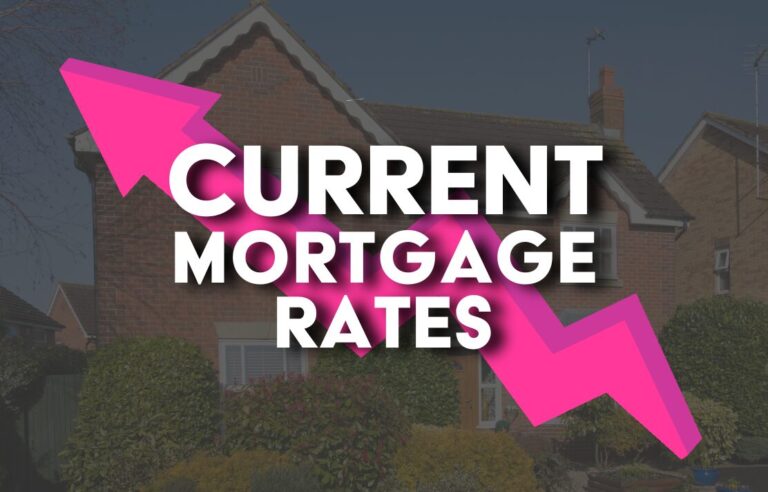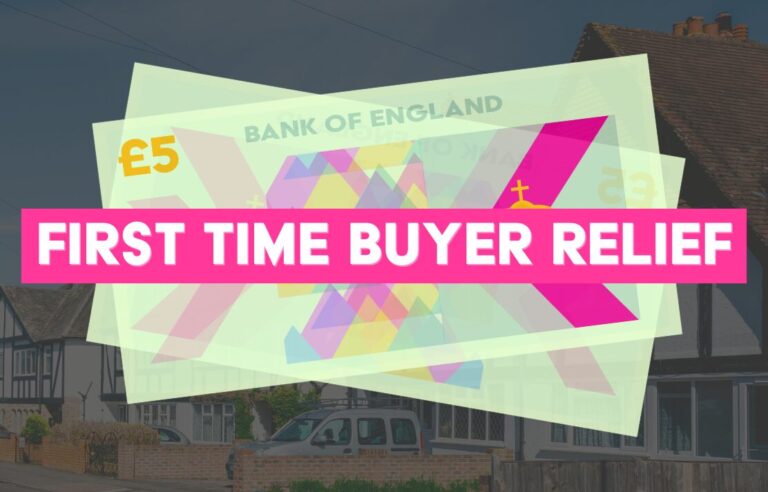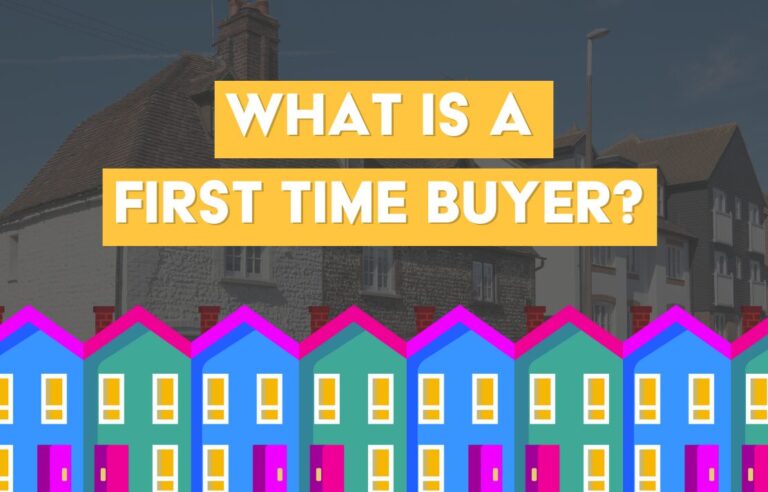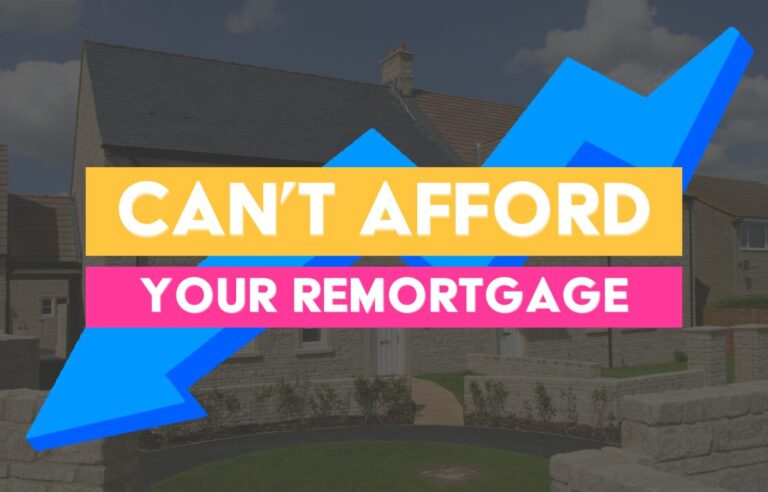It’s no secret that buying your first home can feel like quite the undertaking.
Between arranging house viewings to organising a reliable surveyor, doing your research into the best mortgages for first-time buyers is an essential task.
However, we know that it pays to be prepared when it comes to identifying the best first-time buyer mortgages.
By securing the right deal, you can avoid needlessly losing a significant amount of money and make keeping your financial affairs in order effortless.
At UKMC, we believe buying your first home should be exciting, not stressful.
To help you select the best deal for you, we explain the different types of mortgages for first-time buyers as well as the factors you should consider when applying for a mortgage.
Our down-to-earth team won’t baffle you with jargon; we’ll simply explain your options, highlighting the pros and cons in a way that’s easy to understand.
To learn more about our first-time buyer services or to book an appointment, request a call back from one of our knowledgeable mortgage advisors today.
Who qualifies for a first-time buyer mortgage?
A first-time buyer is simply anyone that wants to buy their first property.
If you’re purchasing a home with another individual that has previously owned a property, then you won’t qualify for a first-time buyer mortgage.
It’s equally important to bear in mind that most lenders won’t make a distinction between individuals that have bought property in the UK and those that have purchased a home abroad either.
Regardless of the location or type of property that you’ve purchased, or even inherited, you won’t typically be considered a first-time buyer.
If you’re unsure whether you’ll be considered a first-time buyer, simply call our team today to discuss your property history with one of the experienced mortgage advisors at UKMC.
What are the different types of mortgages for first-time buyers?
With no prior experience of purchasing a property and the many different types of mortgage loans for first-time buyers, knowing which mortgage is right for you can feel impossible.
To help you understand the various options available and what they mean for first-time buyers, we explain some of the different types of mortgage for first-time buyers.
Fixed-rate mortgages
One of the most well-known types of mortgages are fixed-rate options.
As the name, suggests, this means the interest rate on your mortgage is fixed for a defined period. This can be anywhere from just two years to 15, but it’s common for first-time buyers to be offered either two-year or five-year fixed rate mortgage deals.
As a first-time buyer, the biggest benefit to a fixed-rate mortgage is the stability it offers. This can make budgeting much easier, especially if you’re planning on carrying out renovation or refurbishment work when you move in.
However, this benefit of knowing exactly how much you need to pay each month comes at a premium which can encourage eager homeowners to opt for a standard variable rate (SVR) mortgage instead.
Standard variable rate mortgages
Once the fixed-rate term deal has ended, you’ll either move to a SVR as offered by your current bank or building society, or you’ll need to switch to another mortgage deal (remortgage).
With an SVR mortgage, it’s much harder to budget as the amount you pay each month varies depending on your lender’s basic rate of interest which can go or up or down at any time. This variable-rate mortgage can be advantageous as there’s usually no early repayment charges when it comes to remortgaging and they often have lower arrangement fees than the fixed-rate alternative.
However, these rates are typically substantially higher than other mortgage deals on the market, they tend to come without discounts, and the short notice change in your mortgage repayments can prove harmful to your monthly budget if the price has risen significantly since your last payment.
Variable rate tracker mortgages
Unlike SVR mortgages where the interest rate is set by the specific lender, variable rate tracker mortgages (also known more simply as tracker mortgages) vary according to the Bank of England’s (BoE’s) base rate.
Tracker mortgages often deliver a better deal compared to SVR mortgages, but are still set a certain percentage above the BoE base rate. However, their variable nature does mean that your payments can go up or down at any time, just like SVR mortgage repayments, making budgeting each month harder.
Discount rate mortgages
A type of discounted SVR mortgage, a discount rate mortgage is offered at a lower interest rate than the lender’s SVR.
By way of illustrating, if a lender’s SVR is five per cent and it is offering a one per cent discount, then your interest rate will be four per cent.
This lower rate can be attractive to first-time buyers that are keen to keep their mortgage repayments more manageable for a fixed period of time – often two years.
However, despite the continuous set discount, the rate of interest can always change throughout this period, unlike a fixed-rate mortgage that remains the same.
Capped-rate mortgages
Capped-rate mortgages (also referred to in short as capped mortgages) are also variable just like SVR, tracker, and discount mortgages, but they come with a fixed upper limit.
This means regardless of how much interest rates might rise, your agreed monthly mortgage payments will never go above this agreed maximum rate.
Unlike SVR mortgages where there’s no upper limit, capped-rate mortgages can offer some peace of mind when it comes to ensuring you have enough set aside every month to cover any rise in interest rate.
Offset mortgages
Offset mortgages are a type of mortgage that’s only available to those who want to take out a mortgage with the same lender they use to look after their savings account.
The cash savings you have in this account are used by your lender to reduce or ‘offset’ the interest rate on your mortgage.
This can allow you to secure a better deal with lower monthly repayments, helping you to save even more money. However, the interest rates on these deals have a tendency to be higher than SVR mortgages and there are only a few mortgage providers that will offer their customers an offset mortgage.
No-deposit mortgages
Also known as a zero-deposit or 100 percent loan to value (LTV) mortgage, these deals mean the lender loans you the entire property purchase price, no deposit required.
With no deposit needed, you could own a home sooner than you expect, helping you to save a significant amount of money that could otherwise be spent on renting while you saved up for a deposit.
No-deposit mortgages are a relatively new option for first-time buyers, with many banks and building societies using the individual’s ability to make rental payments (alongside their salary and outgoings) to determine affordability.
This means renters that struggle to save enough for a deposit have a greater chance of securing a mortgage and becoming homeowners.
However, you’ll still need to pay for a variety of additional costs such as survey and solicitor fees, as well as stamp duty costs (if applicable).
Not to mention, opting for a no-deposit mortgage means you’ll often by paying more in the long term than if you were to put down a deposit of at least five per cent due to the increase in interest rates.
Five percent deposit, 95 per cent mortgages
One of the most common mortgages used by first-time buyers is the five per cent deposit, 95 per cent mortgage deal.
Instead of the typical 10 per cent deposit that’s required to secure a mortgage, the government’s Help to Buy scheme has made it possible for first-time buyers to obtain a mortgage with just a five per cent deposit.
Though this scheme ended in March 2023, it was crucial for helping first-time buyers get onto the property ladder. However, it was also a riskier arrangement for a variety of reasons.
First, if house prices fall, there’s an increased risk of negative equity (when a property is worth less than the outstanding balance of the home loan).
Like no-deposit mortgages, interest rates also tend to be higher on five per cent mortgages than mortgages with at least a 10 per cent deposit, meaning you end up paying more over a longer period.
Are there certain mortgages only available to first-time buyers?
While there are no specific mortgages that are solely available to first-time buyers in the UK, there are certain schemes and deals that are only available to eligible first-time buyers.
The government’s First Homes scheme, for example is offered exclusively to first-time buyers.
This scheme provides prospective buyers with a discount between 30 and 50 per cent of a newly built home’s market value, but availability is limited and this scheme has strict eligibility criteria that must be met.
The government’s Mortgage Guarantee scheme has also helped to make 95 per cent mortgages more accessible to first-time buyers.
On top of these mortgage-related schemes, the government has also introduced a relief scheme[AS3] [EW4] that increases the stamp duty threshold for first-time buyers.
First-time buyers will only be required to pay this tax on properties that exceed this higher threshold, helping them to save a significant amount of money.
If you’d like to learn more about your mortgage options as a first-time buyer in the UK, feel free to book an appointment with an expert UKMC mortgage advisor today.
Factors to consider before applying for your first mortgage
Before you start contacting various mortgage lenders to get an idea of how much you can borrow or even an Agreement-in-Principle, there are several important factors that you should take into consideration first as a first-time buyer.
Mortgage lenders will assess a number of areas to help determine your affordability and how much of a risk it would be to lend you money.
High affordability and low risk are the ideal ingredients for a lender, so it’s worth making yourself as attractive an investment as possible to increase your chances of obtaining a better deal.
Are you on top of your finances?
Paying off as much debt as possible, getting a copy of your credit report (and improving your credit score), and getting a handle on your spending are all essential to building your financial health.
If you’ve got a lot of outstanding loans or your credit history is peppered with late payments, lenders are more likely to see you as a riskier mortgage applicant – especially as a first-time buyer.
Boosting your credit report and adopting a stricter monthly budget can be instrumental in proving yourself to be a financially stable individual.
Do you have proof of stable income?
Mortgage lenders will want an accurate and reliable salary figure to help them to determine whether you can afford your mortgage repayments.
As a result, you’ll need proof of income, either from your employer (in the form of a P60, bank statements, and payslips) or a SA302 form and access to your full accounts from the last three years if you’re self-employed.
In addition to providing mortgage lenders with proof of how much you’re earning, it also pays to demonstrate employment reliability. Applicants still in their probationary period or with a significant history of swiftly hopping from job to job, could be rejected by cautious mortgage lenders.
Would you need help obtaining a mortgage?
Whether you’re concerned about the size of your deposit, are worried you’re not earning enough as a single applicant, or need a hand understanding your mortgage options, it’s vital that you explore any help that’s available to you as a first-time buyer.
Government schemes, a second mortgage applicant you can rely on, or an experienced advisor that specialises in helping first-time buyers, can all make a massive difference when it comes to securing your very first home.
Which mortgage is best for first-time buyers?
The mortgage for a first-time buyer is completely personal, so there’s no set answer that will work for every aspiring homeowner.
The right mortgage for you will vary depending on your financial situation as well as your personal preferences and eligibility for certain government schemes.
At UKMC, we understand that buying your first home is a very exciting time, but it can also be incredibly daunting and confusing without the right support.
Fortunately, we have years of invaluable experience helping our customers to make sense of the different types of mortgages for first-time buyers and which option might be best for them.
From highlighting the pros and cons of government-backed schemes to clearing up confusion by properly explaining mortgage jargon, we aim to make the process of obtaining the best first-time buyer mortgage for you quick, easy, and as fuss-free as possible.
Professional first-time buyer mortgage support
If you’d like to find out more about the best mortgage for first-time buyers, our first-time buyer services, or are keen to start your mortgage application today, don’t hesitate to book your appointment with the expert UKMC team today.
To get in touch with our team of down-to-earth first-time buyer mortgage advisors, you can use our convenient online contact form to request a call back.
Better yet, if you live (or want to live) in the Cheshire area, you can always speak to an experienced member of our team in-person by coming down to our Warrington office.
Our friendly, family-run business welcomes customers from the surrounding area and further afield.
Disclaimer
UK Mortgage Centre Limited is an Appointed Representative of Refresh Mortgage Network Limited. Refresh Mortgage Network Limited is authorised and regulated by the Financial Conduct Authority. We are entered on the Financial Services Register under firm number 1019794.
As a mortgage is secured against your home, it could be repossessed if you do not keep up the mortgage repayments. The Financial Conduct Authority does not regulate some forms of buy-to-let mortgages.
The Financial Conduct Authority does not regulate will writing and taxation and trust advice.
You may be charged a fee for your advice. A typical fee is £495, which would be payable when you receive your mortgage offer. Your dedicated advisor will discuss this further on your free initial phone call.
Registered company number: 15825320
